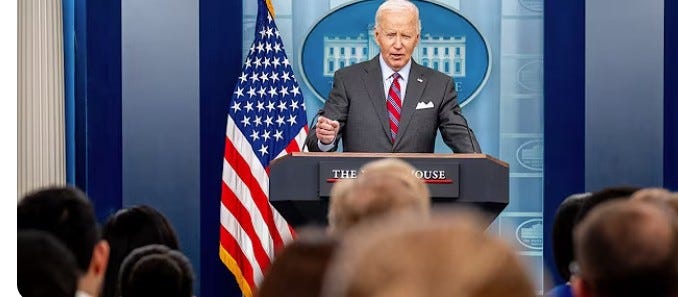A coalition of Senate Republicans has firmly positioned themselves against a controversial piece of legislation spearheaded by Senator James Lankford (R-OK).
The bill, developed in collaboration with Senators Krysten Sinema (I-AZ) and Chris Murphy (D-CT), has ignited a firestorm of criticism from conservative ranks, as it failed to adequately secure the U.S. southern border while allocating excessive funds to foreign aid.
The comprehensive $118.28 billion national security supplemental package bill, totaling $118.28 billion, allocates a staggering $60.06 billion to Ukraine in response to Russia’s aggressive military actions.
In contrast, U.S. border security efforts are earmarked to receive $20.23 billion.
According to Democrat Senator Patty Murray, the $118.28 billion national security supplemental package includes:
$60.06 billion to support Ukraine as it fights back against Putin’s bloody invasion and protects its people and sovereignty.
$14.1 billion in security assistance for Israel.
$2.44 billion to support operations in the U.S. Central Command and address combat expenditures related to conflict in the Red Sea.
$10 billion in humanitarian assistance to provide food, water, shelter, medical care, and other essential services to civilians in Gaza and the West Bank, Ukraine, and other populations caught in conflict zones across the globe.
$4.83 billion to support key regional partners in the Indo-Pacific and deter aggression by the Chinese government.
$2.33 billion to continue support for Ukrainians displaced by Putin’s war of aggression and other refugees fleeing persecution.
The bipartisan border policy changes negotiated by Senators Chris Murphy (D-CT), Kyrsten Sinema (I-AZ), and James Lankford (R-OK).
$20.23 billion to address existing operational needs and expand capabilities at our nation’s borders, resource the new border policies included in the package, and help stop the flow of fentanyl and other narcotics.
The Fentanyl Eradication and Narcotics Deterrence (FEND) Off Fentanyl Act.
$400 million for the Nonprofit Security Grant Program to help nonprofits and places of worship make security enhancements.
The bill will also:
If, over a week, the average number of people showing up at the border without the right to enter is between 4,000 and 5,000 each day, the government can decide to use this special tool.
If the average number goes above 5,000 people per day, then the government has to use it.
Also, if on any single day more than 8,500 people show up without permission, the government must use this tool right away.
But there’s an exception: kids who come to the border alone from countries that are not next to the US don’t count in these numbers.
Senate Majority Leader Chuck Schumer (D-NY) has issued an ultimatum, suggesting that failure to pass the bill could lead to American involvement in war, a claim that has been met with criticism, especially given that Ukraine is not a NATO member and therefore not under U.S. protection.
While RINO Senate Minority Leader Mitch McConnell is reportedly in favor of the bill, a cohort of Republican senators are stepping forward in opposition, determined to block the ‘uniparty bill.’
Below is the full list of these senators who are publicly committing to oppose the bill:
Sen. Bill Hagerty (R-TN)
Sen. Eric Schmitt (R-MO)
Sen. JD Vance (R-OH)
Sen. Jim Risch (R-ID)
Sen. Josh Hawley (R-MO)
Sen. Katie Boyd Britt (R-AL)
Sen. Marco Rubio (R-FL)
Sen. Marsha Blackburn (R-TN)
Sen. Mike Lee (R-UT)
Sen. Mike Braun (R-IN)
Sen. Rand Paul (R-KY)
Sen. Rick Scott (R-FL)
Sen. Roger Marshall (R-KS)
Sen. Ron Johnson (R-WI)
Sen. Steve Daines (R-MT)
Sen. Ted Cruz (R-TX)
Sen. Tom Cotton (R-AR)
Sen. Tommy Tuberville (R-AL)
The Republican opposition appears unified in its stance against the uniparty bill, signaling tough negotiations ahead as the legislation makes its way through the Senate.
We will update this post once more senators have publicly refused to vote on this bill.











